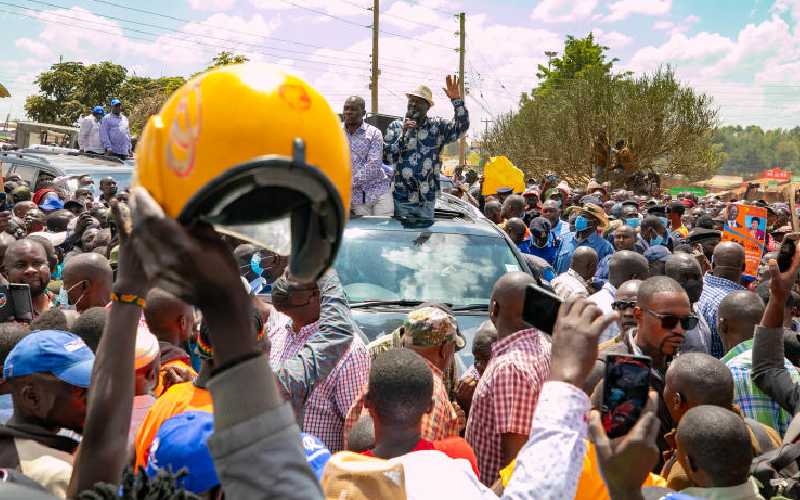×
The Standard e-Paper
Home To Bold Columnists

ODM leader Raila Odinga addressing residents of Sibanga area in Trans Nzoia County on his way to Kitale town on November 20, 2021. [Emmanuel Wanson, Standard]
Although he is yet to formally announce his interest, political observers are in agreement that ODM leader Raila Odinga’s presidential bid is this time around more potent than previous attempts at clinching the top seat.